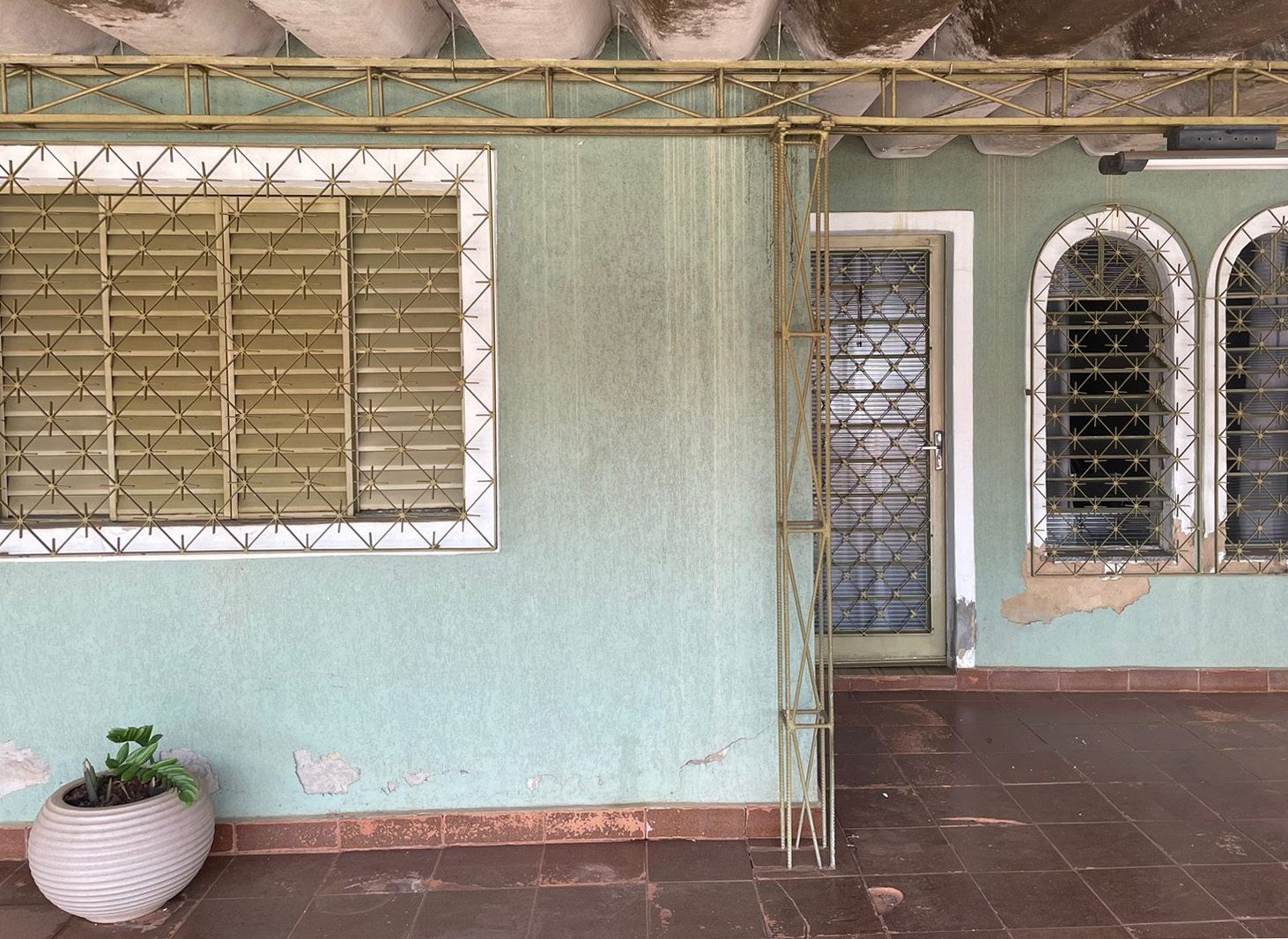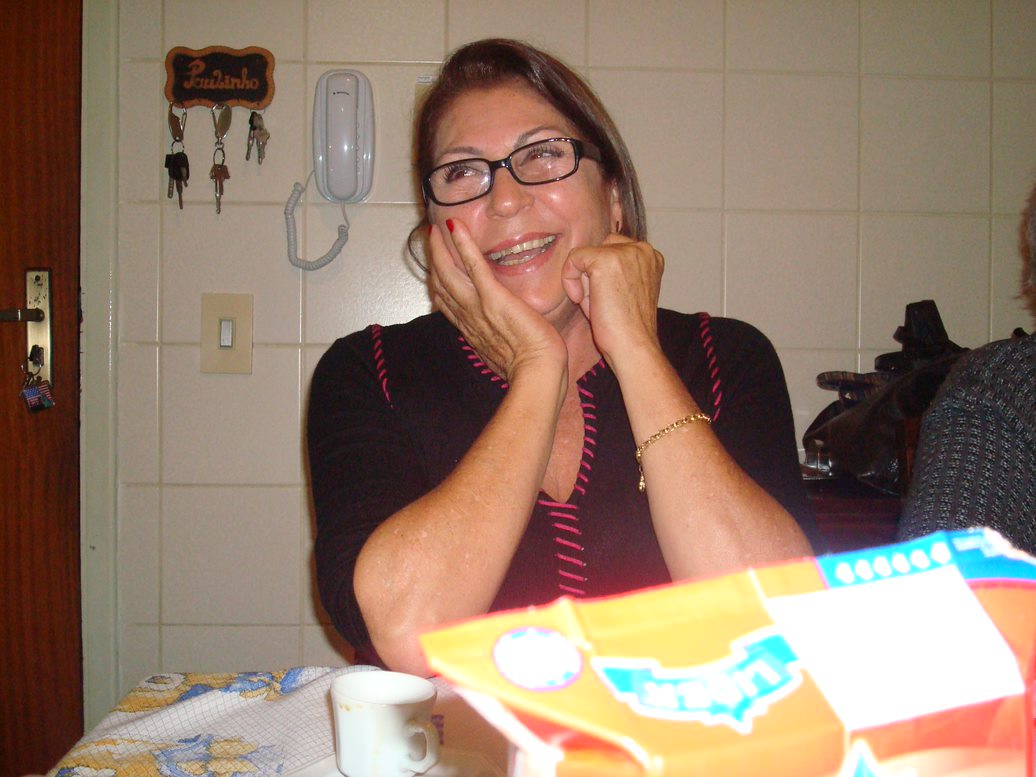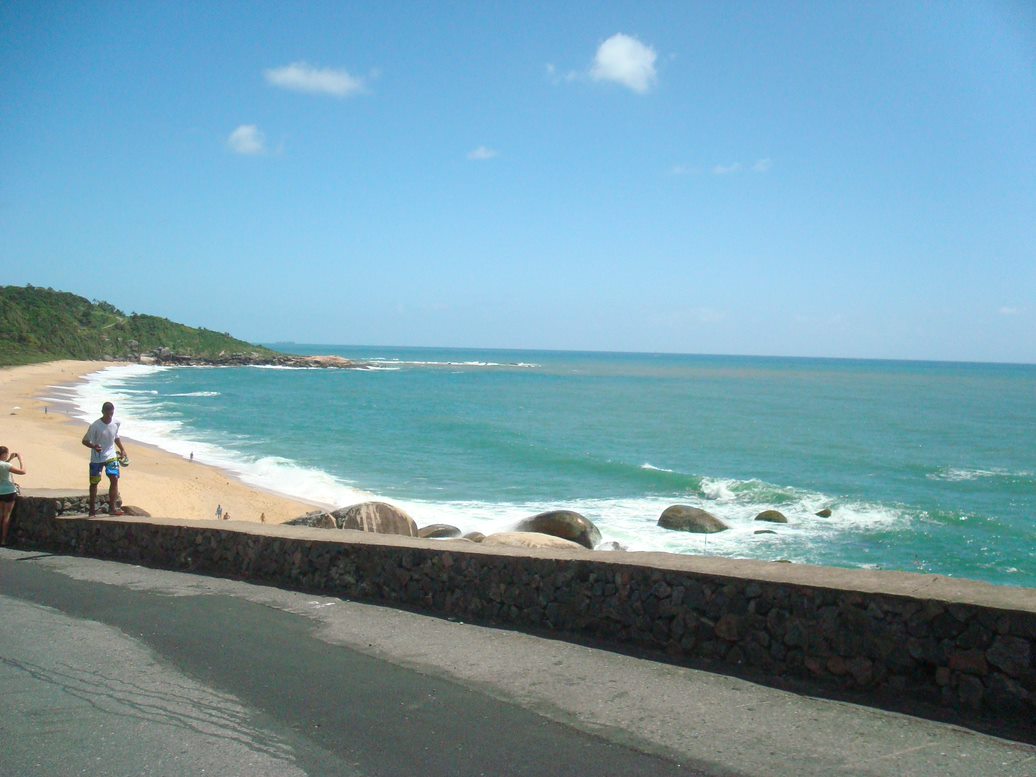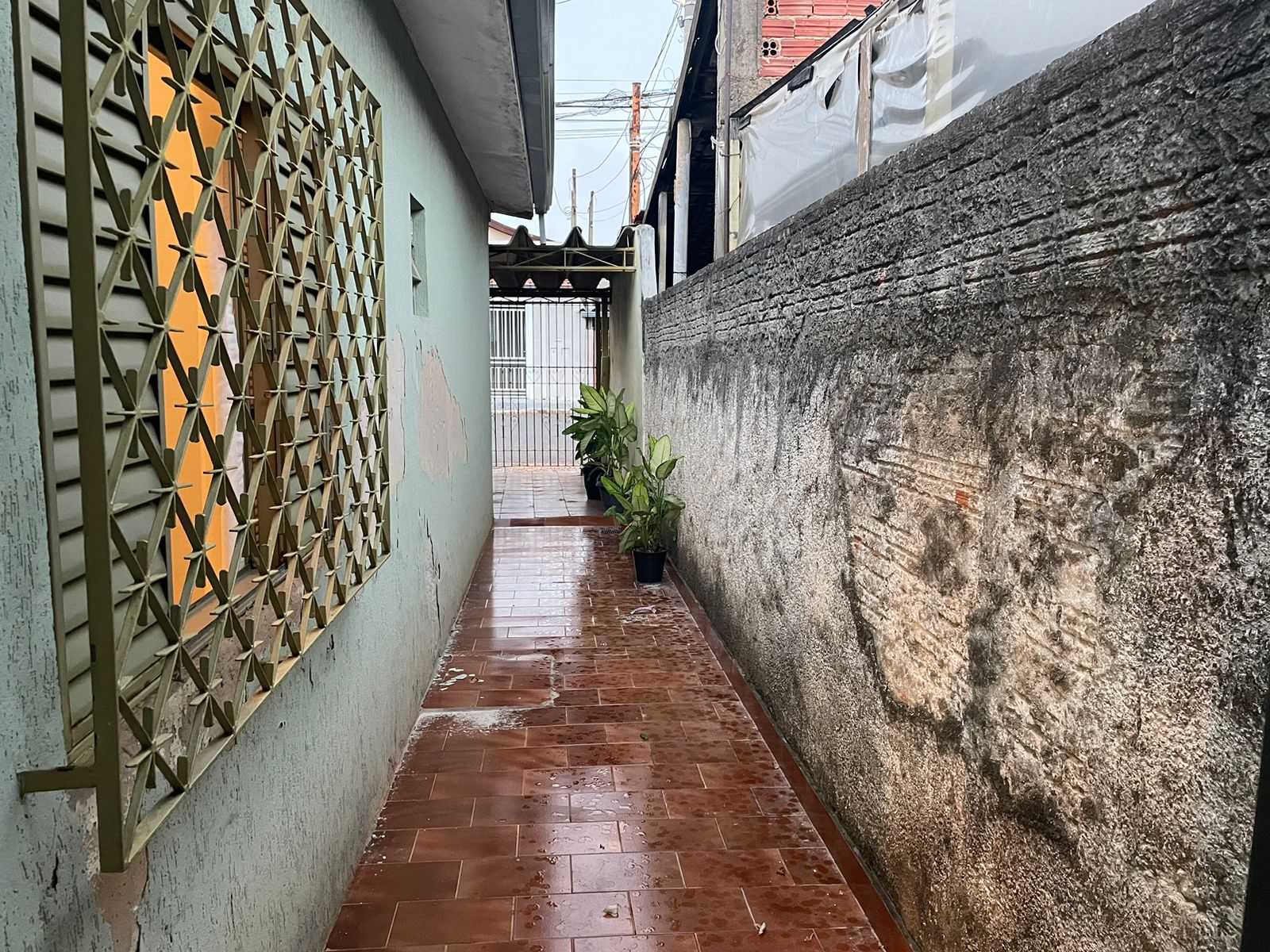

We had arrived.
The green house, with its old walls with peeling paint, was inhabited by my maternal grandparents, Geny and José.
My mother, my father, his mother, and I waited at the gate.
It was June and cold, but the South American sun gave us some warmth in those moments it penetrated the mist that besieged us.
My mother clapped her hands noisily, calling for someone to open the gate’s door.
Soon, my aunt appeared from the slim corridor that led to the house’s entrance and greeted us excitedly.
As she moved the heavy bars I ran inside, paying no mind to her attempts to hug me. I circled the house, and directed myself to the back door. The backyard’s floor was made of cracked stone, and by the farthest wall there was a vegetable garden. I stood still, enthralled by the tall papaya tree and the innumerable cassava leaves that rose from the red earth. I anticipated the day that my grandmother, Geny, would prepare them for us.
Entering the house, a familiar image appeared before me: my grandmother peeling chickpeas while my grandfather, José, smoked a cigarette. They looked at me, indifferent, but were nevertheless pleased with my arrival. From the kitchen, we heard the voices of my mother and aunt.
I followed the voices along the corridor and saw them undressing my other grandmother, Nice. A white shirt, pants, and undergarments were piled on the floor. I stared at her bare body, confused by the nudity. As a weak smile formed between her lips, the walls of the green house crumbled and the sun emerged with brighter light.

Some years ago, my family and I traveled to our relative’s house in Palmares Paulista, Brazil. The home belonged to my grandmother’s younger brother, Odair.
I was young — probably four or five years old — and sitting by the window of the car on my grandmother’s lap. We sped by green pastures, cattle, and the Tietê river. The river was enormous, extending infinitely. Its brown waters both tempted and scared me as if they were calling my name, luring me into their obscurity.
My little hands tried to grasp the line at which the orange sky met the dark waters, and my eyes tried to see beyond nature’s limit,where the parrots and parakeets disappeared within the blinding light that was reflected by the distant ripples. As my eyes lost focus on the waves, a ghostly image of my grandmother’s face appeared reflected on the glass.
A few hours later, we arrived at the house. Its door was almost unnoticeable and opened to a long, cold corridor. The house smelled of old wooden drawers and its interior was made of confusing divisions. Behind the patio’s wall, banana trees danced in the light breeze.
Whenever we traveled to Uncle Odair’s house, we usually stayed for many days. The trip was long and, despite being close family members, we didn’t see each other very often.
During those days, I would wake up early and would sit with my grandmother on the patio’s table. I remember her standing below a pink sky with a cup of coffee in one hand and a cigarette in the other. I hated her vice, for it slowly consumed her. Her breath, her clothes, her hair, everything became impregnated with that nauseating smell. She used to tell me that, back in her time, it was an “elegant” thing to smoke. My grandmother, in fact, started smoking at the age of sixteen. At that time, it probably soothed her.

She never really spoke of her past. Maybe she thought, or feared, I wouldn’t understand. All I know about her are fragments of what other people have told me.
She did mention her relationship with her father. She used to say he was a good man, who educated her and her brothers in a serene, yet strict, manner. Her mother had died when she was only two, and her memories of her were vague, practically nonexistent.
Her father soon married another woman who, interestingly, shared the same name of her mother: Alzira. Despite birthing one of her brothers, the woman started to treat my grandmother badly after the death of her father when she was only fifteen.
Some time later, my grandmother was kicked out of their house. In search of renewal, she, the oldest of the four siblings, parted from Palmares to Campinas. A few years later she finally settled in Americana, where she remained for the rest of her life.
In Americana, she met a man whom she fell in love with. When she got pregnant, the man left and never returned.
A few years after giving birth to her first son, she met my grandfather, Paulo, who helped her and my uncle with their necessities. They soon married and from this union, two other boys were born.
The first years of their marriage were filled with love and tranquility, but difficulties eventually emerged when both were fired from their jobs. Little by little, everything around them disappeared. They lived in the dark with no gas or food.
But when my grandmother found a new job, my grandfather started to drown his ego in liquor. The walls of their house compressed the darkness into his cup and blinded his eyes as if they were covered in tar. My grandmother left, leaving her three sons under the care of their father. Only a year later did she come back for them. My grandfather had been abandoned, alone within enclosing walls.

Perhaps going back to Palmares reminded her of those particular times when her father would place her on his lap and tell her about the greatest mysteries she had ever heard.
Years later, I would sit by her side and she, just like her father, would tell me those same mysteries, those same stories, without giving me the answers she had found years before.
One mystery in particular appeared on an ordinary night. I was six or seven years old and my house was immersed in darkness. From the door, all I could see were red and black candles. The weak light that emerged from the flames revealed the silhouette of a glass filled with marafo. From the kitchen I could smell cigars. In the living room, my parents, uncles, friends, and my grandmother sat in a circle. All eyes were turned to her. Her shoulders were arched, her eyes were shut, her face was distorted. From the depths of her throat a loud laugh broke out. In an instant, the room was filled with the sweet scent of a lit cigar. A grave voice spoke. He was an Exu, specifically Exu do Lodo, an entity of the Umbanda practices in Brazil.
Because our city lacked, at that time, a terreiro, such meetings were held at our house, but only with family and friends. My grandmother was the medium.
At first, such reunions were confusing to me, but gradually everything started to make sense (although not completely). In the end, her body shook and her breathing became tired, loud, desperate.
From the window, a cold breeze entered, carrying the smell of trees and rain. As a child, such a smell reminded me of the hills that we drove through when going to the beach.

We usually traveled to Santos or Guarujá, but my memories most take me back to a beach in the state of Santa Catarina. I always loved the sea, but on this day, it scared me. The waters, brown and green, were covered with dead jellyfish. Their floating gelatinous bodies provoked fear (or perhaps disgust) in me. My grandmother placed me on her shoulders and I grabbed her, desperately. Together, we entered the sea.
“Yemanjá,” she murmured.
Her hands pushed the viscous spheres out of our way until we reached the floor. Her feet barely touched the sand and I couldn’t see my toes. Our bodies floated, alive. Água-viva. The dead beings scared me more than the possibility of my own death.
On the way back, the process was repeated, but the jellyfish were not there.

In January 2021 we were back at the green house. It was night and we had just finished our last match of truco, which I had won.
My grandmother stood up, her legs a bit weak, and announced that she would leave. We walked to the gate where she hugged me. Her hug was always the same — strong — as if it had the power to remove all burdens. Tears, which I hardly ever saw from her, meandered from her eyes.
As she entered her car I looked away, afraid. When the engines started, I looked back, only to see her car move towards the dark, already disappearing into oblivion, my oblivion.
***
The sun hid behind the mist once again, and the crumbled walls of the green house returned to their original form. My grandmother’s tender smile was still there and her bare body glowed like a golden goblet.
Without looking away from each other, we walked through the corridor while she spoke words I don’t recall. As we entered the house, the family greeted her. She took a glass of beer and raised a toast.
I walked away and the picture of our supper, our last supper, appeared before my eyes. Blinded by the perennial light that radiated from all corners, my eyes opened, and my room finally took form. The ceiling hovered above my face. My vision was misty. But within the mist, and beyond the waters of my subconscious where my body and mind floated between dreams and a distant, sometimes foreign, reality, her haunting smile was perceptible.
And the walls, this time, did not crumble.
And the sun, the moon, the stars, and all light became one.
And her smile was tender.


